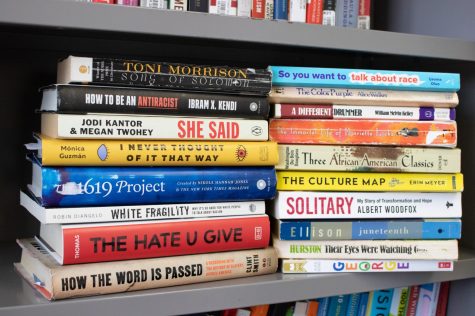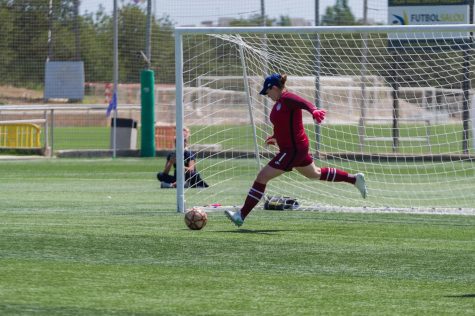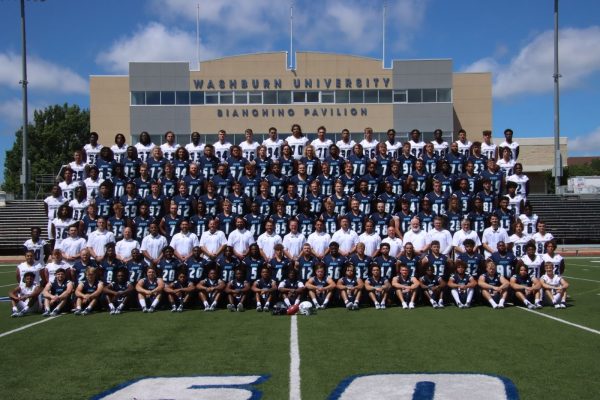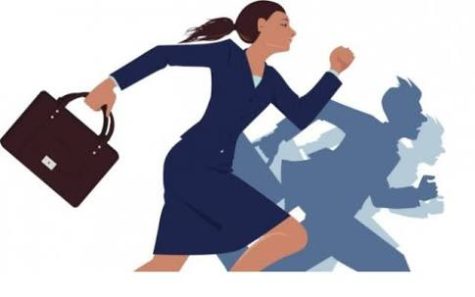Athletes speak out about destigmatizing mental health in sports
Indigo Magazine
In an industry as competitive and cutthroat as professional sports, there is a sparse amount of compassion to go around. Because of the short lifespan athletes have to compete at the highest levels, injuries are one thing where fans, players and coaches alike will grimace and common humanity takes the forefront.
The progress to recognize the seriousness of head injuries is slow, but it has increased in recent years. Unlike a physical injury such as a broken ankle, it’s hard for others to see if a person has suffered a concussion based on their outward appearance. In the same way, struggles with mental health are even harder to recognize because they will not always show up on an injury report and can be caused by something different from the sport entirely.
“It’s hard to see a mental illness. It’s easy to see a physical illness because it shows. I think people can overlook it and say, ‘Oh, they’re weak,’ or, ‘They just need to keep fighting,’ when that’s not the case,” said Kimi Patterson, a sophomore on the Washburn softball team.
The hidden and sometimes silent nature of struggling with mental health makes it hard to recognize when an athlete, or anyone just doing their job, is going through it. Even when mental struggles are out in the open, the level of compassion doesn’t usually match what is given to physical injuries because of the environment around athletics.
“They’re humans, not a show. A lot of people forget that when they see athletes on the court,” said Kelsey Gordon, a senior on the volleyball team in 2021 and co-president of the Student Athlete Advisory Committee at Washburn University.
Societal pressures and expectations can also play a part in how mental health is perceived by the public. Additionally, attitudes toward this issue can vary depending on who the person is.
Even athletes at the highest level of their sport, such as tennis pro Naomi Osaka and Olympian Simone Biles, are not exempt from skepticism and scrutiny. After Osaka backed out of the 2021 French Open because press conferences were taking a toll on her mental health, she was criticized by many. Biles received a similar reaction after backing out of events at the 2021 Olympic Games due to worries that the current state of her mental health would make it dangerous for her to compete.
“I think being women, and women of color, was a huge part of why they got the reaction that they did,” said Brittany Lauritsen, former assistant athletic director and senior women’s administrator at Washburn. “Because there is an expectation that, especially women in professional sports […] compete for our satisfaction and enjoyment.”
Lauritsen also said that society expects women to carry a greater emotional burden without showing weakness because of their assigned roles of nurturer and caretaker. If there is pressure to maintain a certain image, then it can be more difficult to speak out about mental health issues in the first place. For another set of reasons, it can also be difficult for men, especially those in highly competitive athletics, to speak out about struggles with mental health.
“I think the gender stereotype is that guys are supposed to be tougher with a hard exterior and not really show emotion,” said Mason Engelken, a sophomore on the track and field team at Washburn.
One factor that Patterson, Gordon, Lauritsen and Engelken all mentioned as a significant contributing factor to the mental health of athletes and student-athletes was the increasing presence of social media.
“It is a place where it is so easy to tear people down or feel down on yourself. Sometimes that can stifle conversations,” Lauritsen said.
Lauritsen went on to say that the role social media plays is unique because it also has the ability to be used as a positive resource for people who are struggling but have not spoken about it. Some student-athletes have taken some comfort in seeing the way that professional athletes talk about their own mental health on social media.
“I think a lot of athletes have used their platforms to speak out about mental health,” Patterson said. “And that makes us smaller athletes realize we’re not the only ones struggling here. Everyone can talk about it. It’s a normal thing.”
While the pressure from fans and media might be higher for those who are professionals in their sport, college athletes have a whole other set of factors to consider.
“We have to adjust the other areas of our life— whether it’s school, friends or family— in order to fit in with [the expectations of athletics],” Engelken said.
Patterson said that the balancing act of responsibilities for a student-athlete can make it hard to set aside the proper time to be a student, especially during the competitive season.
“You also have the responsibilities of classes,” Patterson said. “It becomes really hard to keep up with your mental health, because there are times where you’re like, ‘I don’t have time to take care of myself,’”
When an athlete does speak out about mental health, the road to rehabilitation has its own set of challenges. Unlike a sprained ankle, there is no treatment or medication for mental health problems that can be administered to guarantee a specific timeline for recovery.
“It’s not a sprint to fix your mental health battles. It’s a marathon. What a lot of people don’t realize is that you have to work at it, just like your physical health,” Gordon said.
One thing that can be done to help the mental health healing process is to inform people of options and resources and make them readily available for everyone.
“On campus we have great resources. We have Counseling Services, which is located in Kuehne Hall, and we also have psychology services as well,” Gordon said.
Making support directly available to athletes in the form of on-campus resources is something that Gordon has emphasized. She, along with Patterson and Engelken, served as co-directors of a committee for mental health in the Student Athlete Advisory Committee in the 2021-22 school year and increased mental health efforts to help student-athletes at Washburn.
“My head coach on the track team has already implemented a psychologist. They’re actually coming and talking to us twice a week for like three weeks about mental preparation and making sure that your mind is right,” Engelken said.
In addition to efforts of individual teams, Patterson and Engelken hope to create opportunities that all athletic teams at Washburn could utilize. One area Patterson wants to focus on is increasing communication between student-athletes and sports psychologists through short presentations, and making mental health resources and options more well-known. Patterson and Engelken searched for a keynote speaker to talk about mental health. In January 2022, SAAC brought Mark Potter, a former Division II basketball coach and current motivational speaker, to Washburn to talk about his experiences with mental health struggles and give advice to the athletes.
Just like there are turnovers and errors in nearly every game in sports, it’s expected that there will also be struggles in life that are expected and out of one’s control. By normalizing conversations around mental health and creating more resources for people who are struggling, progress can continue to be made inside and outside of athletics.
“It’s okay to admit that you are struggling with depression or struggling with other things. We are trying to normalize that, because there is no way somebody is going to have a perfect day every day for the rest of their life,” Gordon said.
Your donation will support the student journalists of Washburn University. Your contribution will allow us to purchase equipment and cover our annual website hosting costs.














